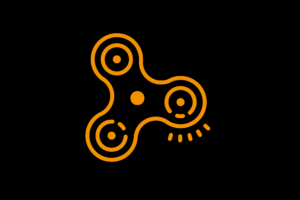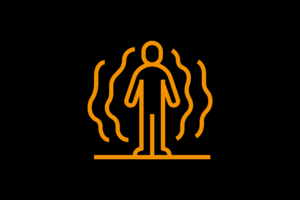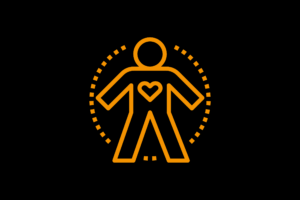Autistic people often have lower sensitivity OR higher sensitivity with their sight. It is common for the levels of sensitivity to change according to how relaxed, stressed or tired the person is feeling.
The scientific name for our sense of sight is the Visual System. Our eyes send messages to our brain to help us understand the world around us.
Lower sensitivity
Someone who has lower sensitivity to sight may notice less visual details, and things can seem less bright.
This means they might rely on other senses a little more to understand people and the world around them. They might not be great at recognising faces, and may need to remember who someone is by the sound of their voice. People might have to be a bit more careful to remember where they put their belongings, as trying to find a phone, keys, or homework diary somewhere in a messy room can be quite a challenge for someone with lower sensitivity to sight.
Higher sensitivity
People who have a higher sensitivity to sight are often very good at focusing on tiny little details in a bigger image. Do you spot when something small is out of place in a room or if a person has changed something about their appearance? Although this is a great skill, sometimes looking at very busy patterns on someone’s clothing, or a room with lots of different decorations, or being in a busy space with lots of movement can feel too much.
Autistic people with higher sensitivity usually dislike bright lights – especially the long strip lights you often find in schools, supermarkets and big spaces. Not only are they bright, but there always seems to be at least one which has a really annoying flicker, like the bulb needs changing! Moving from a dark room indoors to being outside in the daylight can come as quite a shock to someone with sensitive sight.
TOP TIPS
-
- Sunglasses are a very useful accessory both indoors and outdoors
-
- A baseball cap, or wearing your hood up can help block out some light or busy, distracting environments
-
- Change the display on your phone/tablet/PC to suit you. You can alter the brightness settings until it is more comfortable, or even change the colour of backgrounds and text
-
- If you need to concentrate, avoid sitting in a place where you are facing lots of visual distractions



